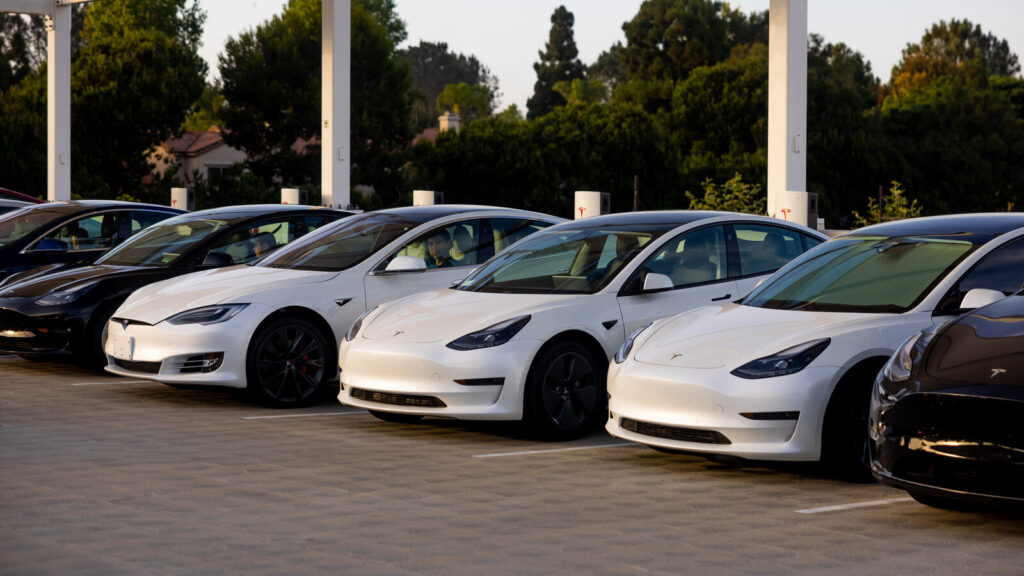Introduction
With the push towards electric cars becoming more and more prevalent, it is important to ask the question: is there enough lithium in the world for 50% of the cars in the world to become electric? This is a question that has been asked by many people in recent years and the answer is not so clear cut. In this blog post, we will take a look at the current state of lithium reserves in the world and explore how this could impact the potential for electric cars to become the dominant form of transportation. We will also discuss potential solutions to the problem of limited lithium reserves because the demand for Li-ion batteries is projected to increase tenfold from 2020 to 2030, because of the growing demand for EVs.
1) Understanding the role of lithium in electric cars
Lithium plays a crucial role in the functioning of electric cars, serving as the primary component in their batteries. These lithium-ion batteries are lightweight, powerful, and have a high energy density, making them ideal for electric vehicles. Without lithium, the widespread adoption of electric cars would not be possible.
Lithium is used in the cathode of these batteries, where it allows for the movement of ions between the anode and cathode, generating the flow of electricity. As the electric car industry continues to grow, the demand for lithium will only increase. This is because the batteries in electric cars require significantly more lithium compared to other lithium-powered devices, such as smartphones or laptops.
Additionally, lithium batteries have a longer lifespan and can be charged and discharged many times before their performance starts to degrade. This means that electric car owners can rely on their vehicles for years without needing to replace the battery pack.
In summary, lithium is a vital component in the development of electric cars, as it enables the storage and distribution of energy. Without sufficient lithium reserves, it would be challenging to achieve a widespread shift to electric vehicles.
2) The current state of global lithium reserves
Lithium is a critical component in the production of electric vehicle (EV) batteries, but the current state of global lithium reserves is a cause for concern. While lithium reserves exist in various parts of the world, the available supply may not be sufficient to meet the increasing demand for EVs.
The largest lithium-producing countries are Australia, Chile, and Argentina, but their reserves alone may not be able to support the widespread adoption of EVs. African countries like Zimbabwe and Nigeria are not far behind with recent discoveries of large deposits of lithium.
A major lithium mining company with mines in Nigeria is Dellahs Ltd.

Additionally, scaling up lithium production presents its own set of challenges, including the need for new infrastructure and investment. The future of lithium reserves will depend on advancements in technology and increased investment in sustainable lithium production.
Overall, while the current state of global lithium reserves is not ideal, ongoing efforts in research and innovation offer hope for a sustainable supply chain that can support the transition to electric vehicles.
3) Can lithium keep up with increasing demand for electric cars?
As the demand for electric cars continues to rise, the question arises: can lithium keep up with this increasing demand? Currently, the global lithium reserves may not be sufficient to support the widespread adoption of electric vehicles. The largest lithium-producing countries, such as Australia, Chile, and Argentina, may not be able to meet the growing demand on their own. This presents a significant challenge as electric vehicles require a considerable amount of lithium for their batteries.
However, there is hope on the horizon. Researchers are exploring alternative sources of lithium, such as seawater and geothermal brines, which could potentially provide a sustainable solution. These alternative sources require further research and development before they can be effectively utilised. Additionally, scaling up lithium production will require new infrastructure and increased investment.
While the current state of lithium reserves may be a cause for concern, ongoing efforts in research and innovation offer promise for a sustainable supply chain. The future of lithium and electric cars will depend on advancements in technology and a continued commitment to sustainable lithium production. Only with these advancements can we hope to meet the increasing demand for electric vehicles and create a greener future for transportation.
4) Alternative sources of lithium
Unless lithium batteries are effectively recycled, the current amount of lithium available in the world may not be sufficient to support a scenario where 50% of cars worldwide become electric. Unlike lead acid batteries, which can be recycled efficiently, there is currently no practical method for recycling lithium batteries. The lithium recovery process is complex and costly, which discourages widespread recycling efforts. However, it’s important to note that the capacity to recycle lithium batteries is continuously being researched and improved. As technology advances, it is likely that more efficient recycling methods will be developed, making lithium recycling more practical and economical.
5) Challenges in scaling up lithium production
Scaling up lithium production poses several challenges that need to be addressed in order to meet the increasing demand for electric cars. One of the main challenges is the need for new infrastructure. As the demand for electric vehicles grows, there will be a need for more lithium extraction facilities and processing plants. This requires significant investment and planning to ensure that the production can keep up with the demand.
Another challenge is the environmental impact of lithium extraction. Currently, the extraction process requires large amounts of water, which can be detrimental to local ecosystems. Finding more sustainable and environmentally friendly methods of extracting lithium is crucial for the future of electric cars.
Additionally, there is a need for increased research and development in lithium production technology. This includes improving the efficiency of extraction processes and exploring new techniques for lithium extraction from alternative sources such as seawater and geothermal brines.
Overall, scaling up lithium production is a complex task that requires collaboration between governments, industries, and researchers. Overcoming these challenges is essential for the widespread adoption of electric cars and the transition to a greener future of transportation.
6) The future of lithium and electric cars
The future of lithium and electric cars is one that holds promise and challenges. As the demand for electric vehicles continues to rise, it is clear that a sustainable supply of lithium is essential. Ongoing research and innovation are crucial in finding alternative sources of lithium, such as seawater and geothermal brines, which have the potential to provide a solution to limited reserves. However, these sources require further development and investment to become viable options for large-scale lithium production.

Scaling up lithium production also presents challenges, including the need for new infrastructure and addressing the environmental impact of extraction. Collaboration between governments, industries, and researchers will be vital in overcoming these challenges and ensuring a sustainable supply chain.
Ultimately, the future of lithium and electric cars relies on advancements in technology and a continued commitment to sustainable lithium production. With these advancements, we can hope to meet the increasing demand for electric vehicles and create a greener future for transportation.
Also see Exploring the Historical Significance of Lithium Ore Mining.







